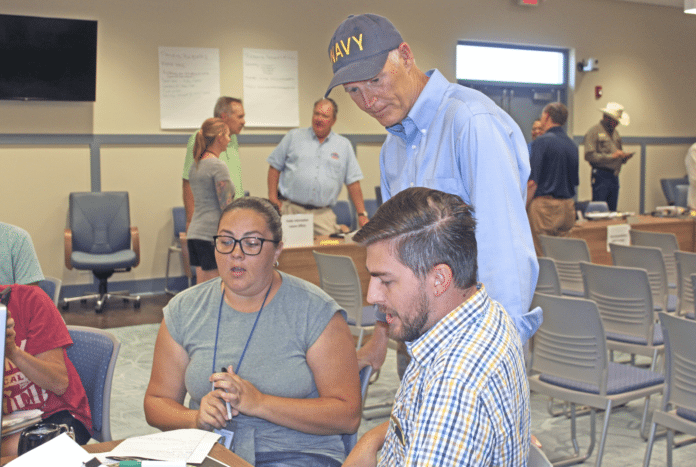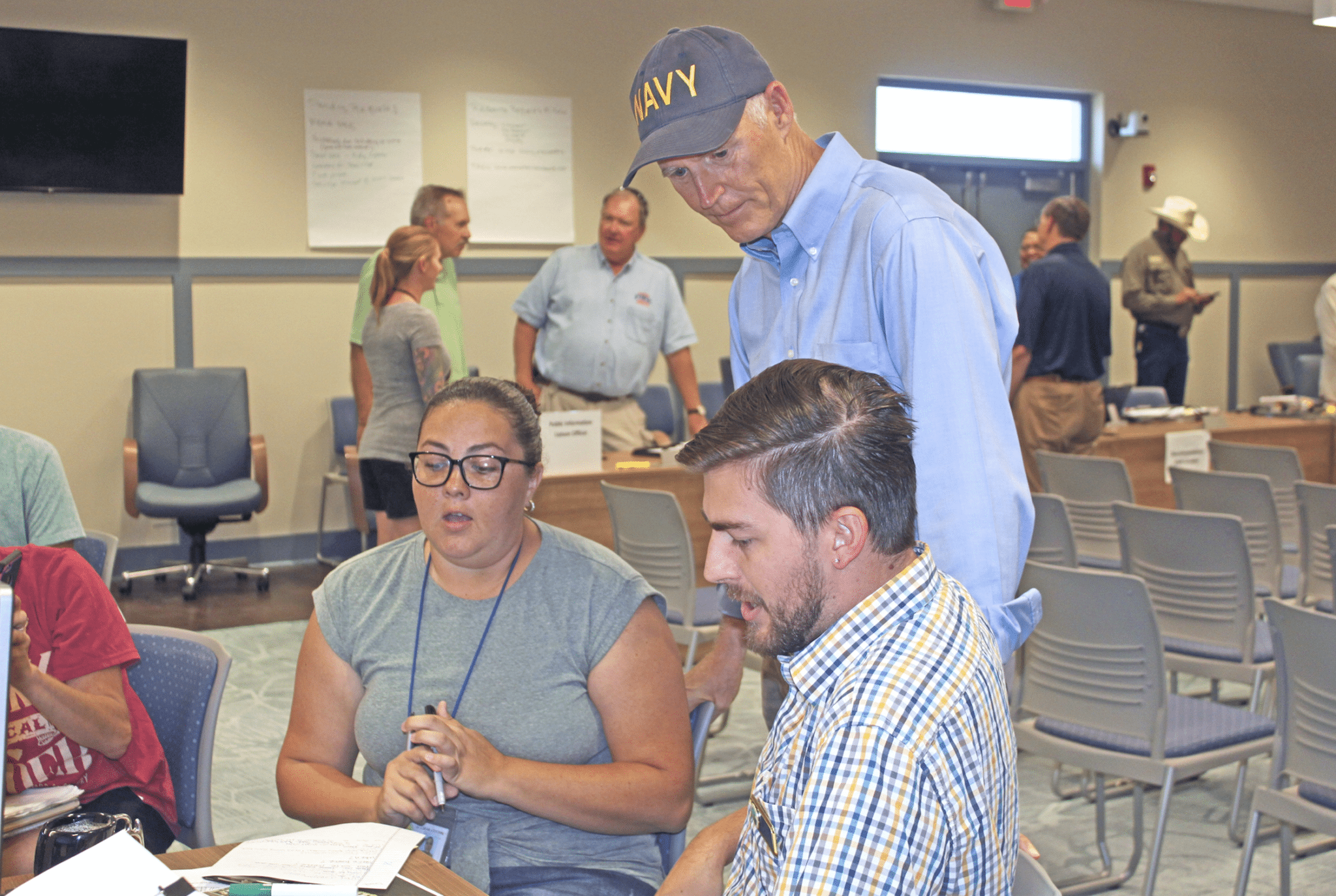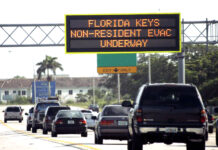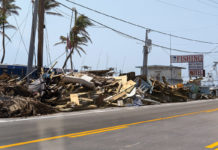

“This is going to be a long-term restoration process,” said Gov. Rick Scott when he visited Marathon City Hall on Sept. 18, eight days after Hurricane Irma struck the Keys. “Clearly, progress has been made, but everything is not ‘fine.’”
Officials from the City of Marathon presented him a list of urgent needs.
They asked for assistance with a long-term housing plan, staff to help with the process, and extensions on all of the state grants such as road or park improvements. The most important, however, is for the state to make a plea to the federal government’s FEMA, allowing some latitude with normal rules in face of the disaster wrought by Hurricane Irma.
The specific language of the letter reads: “allow both state and local governments in declared counties to procure contracts for goods and services that ensure life, safety and the provision of basic needs for Floridians coping with this catastrophic disaster.”
To strengthen the claim, the city attached a similar request generated by Texas in the wake of Hurricane Harvey. If approved, it will allow local and state authorities to move quickly with “sole sourcing” rather than the time-consuming process of bidding contracts.
“I’m asking them to allow sole-source contracting for services such as debris hauling and life safety measures,” said Marathon City Manager Chuck Lindsey. “I also want to set cost limits so price-gouging does not occur.”
The city also asked the governor’s help in securing mobile housing units. Although Marathon High School temporarily serves as a shelter, school begins on Sept. 25. FEMA has a stop-gap measure for short hotel stays that may still be out of reach of low-income residents. There is no other facility large enough to house the hundreds — yes, hundreds — the City of Marathon thinks may have lost their homes. The City of Marathon is quantifying how much temporary shelter it may need.
The city is also developing a plan for donation distribution. Right now, donations are being accepted at the almost-complete utility building at 104th Street and those goods are being farmed out to local distribution centers like those at the high school and Marathon Community Park. The issue is that the city, like the rest of the county, is struggling to find space to store the goods, as many buildings were damaged and those that were not are being used to shelter the staff and equipment of first responders. Water and food seems to be in plentiful supply in Marathon. Building supplies and tools are certainly needed.
“The simplest solution might be cash,” said Lindsey. “It would be amazing if those who want to donate get a stack of $25 gift cards. It allows victims to procure exactly what they need and also serves to get the community back on its feet as quickly as possible by supporting local grocery stores and hardware stores.”
Lindsey also said he needs the help of local organizations to serve as distribution points around Marathon, as well as volunteers to staff the centers. For more information about donations or staff, please call the City of Marathon’s hotline number at 305-289-5020.


























